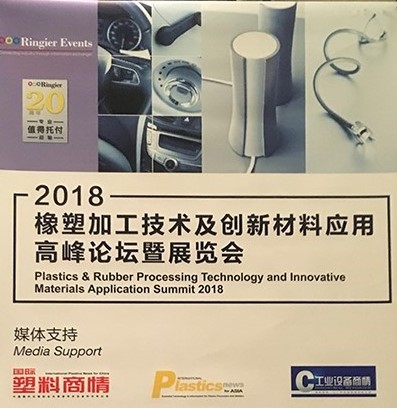Market share growth for electric and hybrid vehicles could bring with it additional opportunities for makers and recyclers of plastic automotive components, according to presenters at a plastics industry conference hosted by Ringier Events in Shanghai in March 2018.
David Qi, a strategy and marketing manager in the Suzhou, China, office of Italy-based plastics producer Radici Group, said “sustainable, lightweight plastics” are taking on a wider role in the automotive industry, especially in electric vehicles (EVs) and hybrid electric vehicles (HEVs).
While auto dismantlers and recyclers have grown accustomed to handling numerous plastic automotive interior parts and plastic bumpers and exterior panels, some EVs and HEVs also are testing the use of plastic in powertrain components, said Qi.

Among the powertrain components in which plastic now has a presence or is being tested, according to Qi, are bearing cages, gear protection parts, coolant pump systems, auto-intake manifolds and turbocharger components.
The use of polymers such as polyphthalamide (PPA, or high-performance polyamide), which can function at “continuous use temperatures” of as high as 200 degrees Celsius (nearly 400 degrees Fahrenheit), is critical, according to Qi.
Such durable polymers have already or may soon prove their worth in automotive applications including headlamp brackets, battery casings and even suspension components, said Qi.
The use of polymers in battery casings is almost certain to expand, said Qi, as EVs and HEVs gain market share. One Tesla batter displayed by Qi featured a series of plastic test tube-shaped battery sections housed within the larger battery pack.
Ringo Li, an engineer with Shenyang, China-based automaker Brilliance Automotive Group, said that company’s use of plastic continues to grow, with vehicle bumpers, grills, instrument panels and seating units being joined by other components in being made with plastic. The auto industry’s move toward lightweighting continues to favor the use of plastic, he added.
Brilliance makes autos under the Brilliance, Huasong and Jinbei brands in China and is in a joint venture with Germany-based BMW in the production of the BMW-5 and other vehicles in China.
Li pointed to a parade of polymers that can now be found in vehicles, with a list that includes polypropylene (PP), polycarbonate (PC), polyvinyl chloride (PVC), ethylene propylene diene monomer (EPDM), acrylonitrile butadiene styrene (ABS), thermoplastic polyurethane (TPU) and blends of these and other resins.
The Plastics & Rubber Processing Technology and Innovative Materials Application Summit 2018 was organized by Hong Kong-based Ringier Events and took place March 7-8 at the Shanghai Marriott Hotel Parkview. - Source: Recycling Today Global (www.recyclingtodayglobal.com)
More news on the Plastics & Rubber Processing Technology and Innovative Materials Application Summit 2018:














